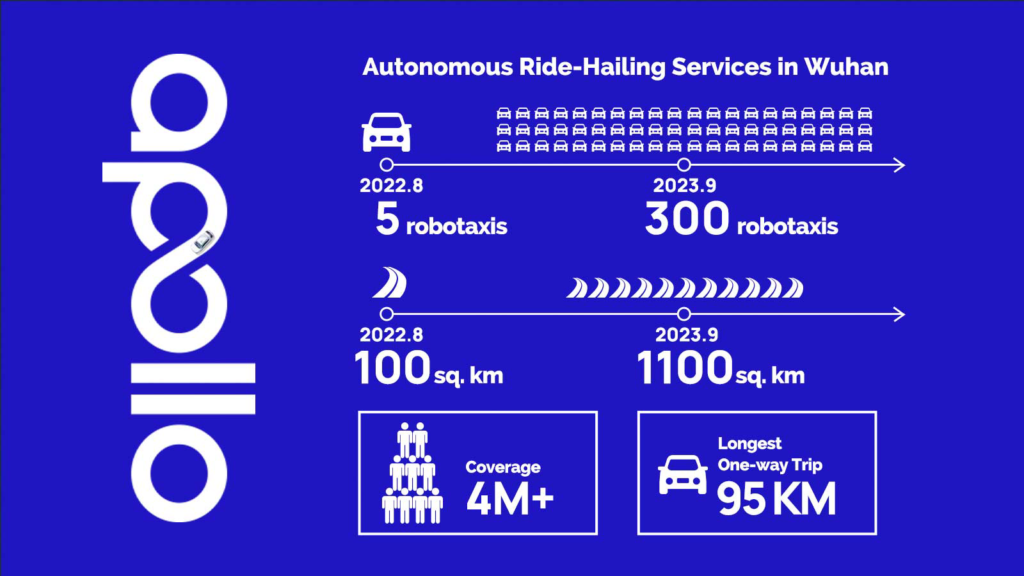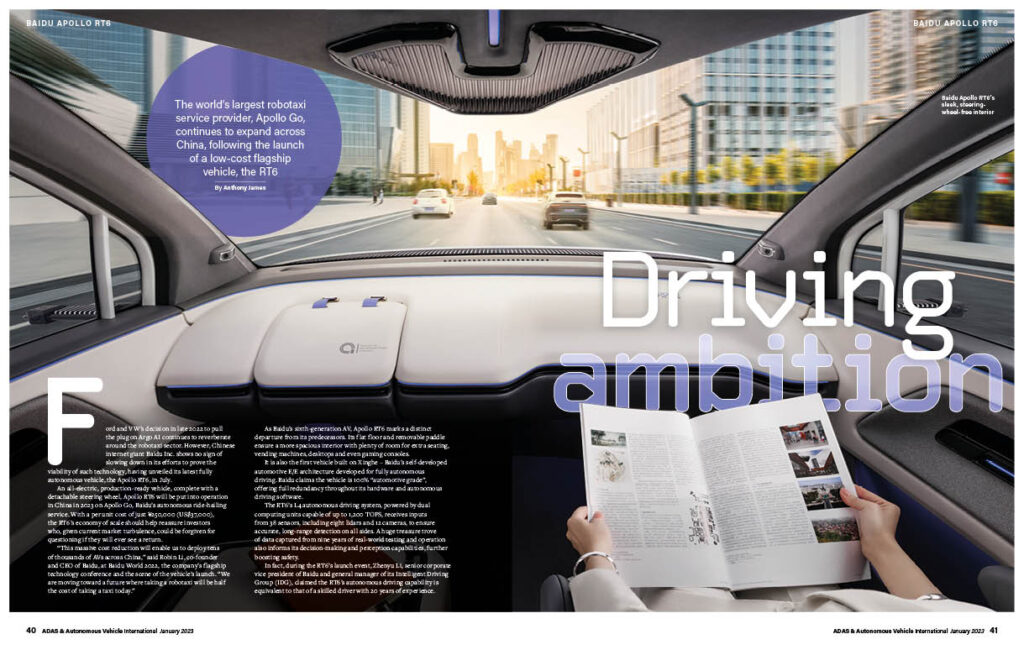Baidu continues to rapidly scale its autonomous driving service in Wuhan, a mega city in central China. Since the launch of its fully driverless robotaxi service in Wuhan in August 2022, Baidu Apollo says it has experienced exponential growth in the number of vehicles, area of operation and user coverage in the city. Baidu’s fleet of fully driverless robotaxis operating in Wuhan has increased to 300, a significant growth from just five vehicles a year ago.
Apollo Go has also achieved its longest one-way service distance in Wuhan, reaching 95km. Apollo Go’s area of operation has also been expanded from 100km2 to 1,100km2, covering four million potential users.
“Over the past year, one of the most significant developments in the intelligent vehicle sector has been the successful implementation of autonomous driving on China’s complex urban roads,” commented Li Zhenyu, senior corporate vice president of Baidu and general manager of Intelligent Driving Group (IDG). “Since the launch of its autonomous ride-hailing service in Wuhan, Baidu has initiated operations across multiple areas in the city within less than a year, including Jingkai, Hanyang, Dongxihu and Qiaokou. The company also managed to expand its driverless car service to cover Wuhan Tianhe International Airport, becoming China’s first to offer driverless airport rides.”
The expansion of its service area and the increase in fleet size have been accompanied by an increase in operational efficiency, leading to continuous cost reduction per vehicle per kilometer, according to the company. At the same time, Apollo Go has seen a significant increase in both average daily order volume and revenue per order.
Meanwhile, Zhang Yaqin, a member of the Chinese Academy of Engineering and the Dean of Tsinghua University’s Institute of Intelligent Industry, has commended the safety of Baidu’s autonomous driving: “Baidu’s autonomous driving safety testing has surpassed 70 million kilometers, and in comparison to human driving, there has been a remarkable improvement in safety, from being three times safer to nearly 10 times safer.”
Apollo Go had provided over 3.3 million rides to the public as of June 30, 2023. Following the successful validation of its approach to technological development, which is based on enhancing the generalization ability of autonomous driving, Baidu Apollo is committed to further improving service quality, enhancing the user experience and continuously broadening travel scenarios to service a growing user base, aiming to facilitate the shift from localized ‘limited areas’ to widespread ‘full-scale’ implementation of fully autonomous driving.

You can read more about Apollo Go’s ambitious expansion plans in an exclusive interview first published in the January 2023 issue of ADAS & Autonomous Vehicle International. To read the interview in its original magazine format, for free, please visit: January 2023 ADAS & Autonomous Vehicle International – UKi Publication Viewer (ukimediaevents.com)



